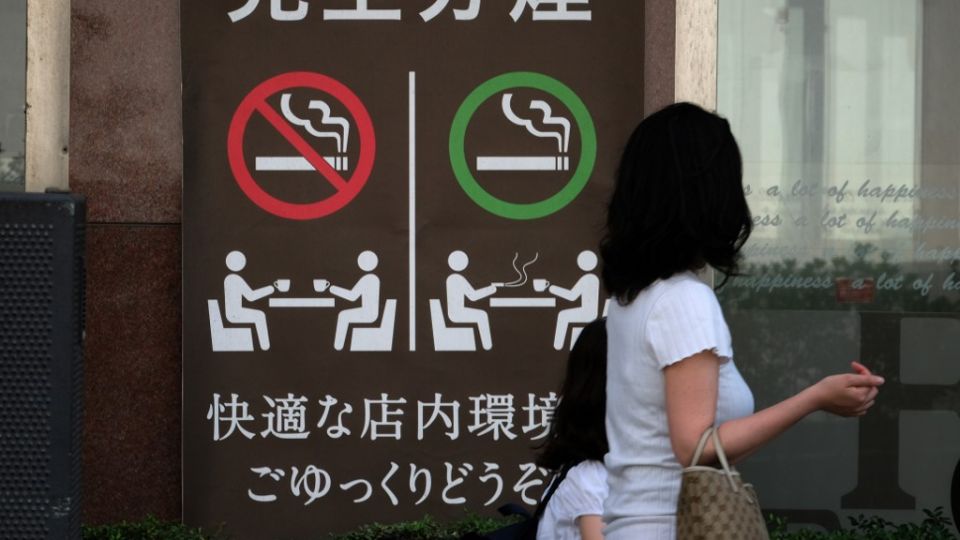May 14, 2019
Domestic firms are taking stronger action against tobacco use, going so far as to avoid hiring smokers in some cases.
Domestic firms are making the move amid greater emphasis on promoting employees’ health, limiting exposure to passive smoking and boosting productivity by eliminating “smoking breaks.”
Some, however, are questioning whether the latest initiatives go too far beyond existing antismoking efforts, such as the designation of smoking areas.
“Combating smoking is a means through which companies can remake themselves,” Sompo Japan Nipponkoa Himawari Life Insurance Inc. President Yasuhiro Oba said after the inauguration ceremony for a corporate consortium to reduce smoking held in Tokyo last month.
More than 20 companies and groups convened for the initiative.
Sompo has stepped up promotion of an insurance service that helps policyholders maintain good health, while refusing to hire new graduates who smoke for its spring 2020 intake. The company’s corporate officers and others in high-level positions must also sign a document stating they will “not smoke during work hours” before assuming their posts.
Hoshino Resorts Inc. likewise requires recruits to sign a pledge to not smoke after joining the company.
Rohto Pharmaceutical Co. aims to eliminate all smoking at work among employees by 2020. Employees who successfully quit smoking receive tokens that can be used at the cafeteria and elsewhere in the company.
Academia has also moved to limit tobacco consumption. Nagasaki University will not hire faculty who smoke to protect students and other faculty members from secondhand smoking. The university confirms during interviews whether candidates smoke. If they do, they will only be hired if they promise to quit smoking.
Oita University has decided to give preference to non-smokers when appointing faculty.
The Health, Labor and Welfare Ministry has also weighed in on such hiring practices. While companies are prohibited from discriminating against applicants based on sex or disabilities, the ministry determined such protections do not apply to smokers.
Pfizer Japan Inc. took a cautious approach before amending its hiring policies, first consulting with lawyers. After concluding that a policy to not hire smokers was relevant to its business activities, Pfizer last month ceased hiring mid-career workers who smoke. It also stopped promoting contract workers to regular employees if they smoke, and will not hire new graduates who smoke for its spring 2020 intake.
According to lawyer Yujiro Yoshimura, who specializes in labor issues, companies have the right to “freedom of employment” and will continue to act against smokers, especially with public opinion on their side. However, he cautioned that “firms might be going overboard if their rules apply to employees’ personal time, in addition to working hours.”


